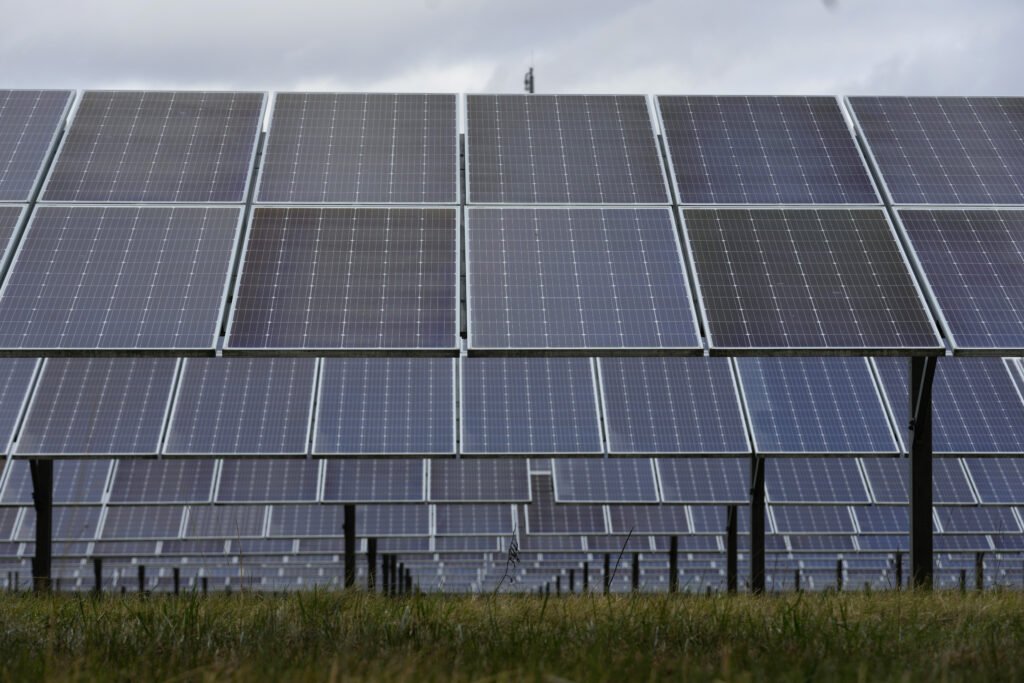Economy
OP-ED: House GOP’s plans to gut green energy tax credits impact businesses like mine

Originally written on May 11
This week, House Republicans passed their plan to repeal clean energy tax credits enacted under the Biden administration. As a small business owner of a solar power installation company, I worry my business will suffer as a result.
To me, solar energy is one of the most democratic things we can bring to a community. When I think of solar, resiliency and autonomy come to mind. In native communities like mine, the self-reliance that solar brings goes hand-in-hand with our tribal sovereignty.
In 2016, I stumbled into the solar energy world with an opportunity to install a solar power system on a building in my tribal nation. I didn’t know much then, but after seeing the impact it had on my community I knew I was onto something big. I call it catching the solar bug, this excitement that overwhelms you. When the Biden administration expanded solar investments last year, the future of my business looked brighter than ever.
For years, solar adoption was limited to those who could afford the upfront costs and enjoy a tax credit after installation. This excluded many lower-to-middle-income homes, as well as non-tax-paying entities like state, local and tribal government buildings.
So when President Joe Biden signed the Inflation Reduction Act (IRA) into law, I was thrilled about what this would mean for my business and the communities we serve. The law expanded solar installation tax credits to 30% for the next ten years and created a direct payment program for non-tax-paying entities to take advantage of the solar benefits.
The IRA is already changing the game. People who once didn’t think they could get solar at all are now asking me how many panels they can install. Not only is it a positive thing to do for the community and environment, but many solar users enjoy cost savings — or are even paid for their energy production.
In this day and age, we can’t just rely on coal and fossil fuels anymore. It’s actually a matter of national security to be so reliant on a single source. When I think about climate change causing more severe and frequent natural disasters, I see how our energy grid is incredibly vulnerable. We need distributed energy resources, and solar will play an increasingly important role in our energy security.
The clean energy transition is already underway, and the IRA is going to be a catalyst for this burgeoning new industry to really take off. Since its enactment just nine months ago, the IRA has spurred over 90 new projects and more than 100,000 jobs right here in America. Paired with Minnesota’s commitment to 100% clean energy by 2040, and we will have ten years of projects and good-paying jobs.
I know how historic this law is. For me, it will grow my business exponentially. I think every successful business can point to some type of federal investment or incentive that allowed it to grow. In ten years, I’m going to be looking back on the IRA as the catalyst for me to get a foothold in this industry.
It’s disappointing to see some congressional Republicans want to repeal these critical tax credits. If we don’t start really committing to the clean energy transition over the next 20-30 years, we would do a disservice to our communities, environment and national security. Solar power and other clean energy projects make our country more adaptable and resilient to the impacts of climate change that lie ahead. Why would anyone be against that?
Not only would the House GOP plan set the country further behind in energy security, but it could hamper the future growth of my business. Our people, environment, economy, national security and future generations all need the Inflation Reduction Act. I hope the lawmakers leading the repeal realize just how devastating these cuts would be.
Robert Blake is the founder of Solar Bear, executive director of Native Sun Community Power Development, adjunct professor at the University of Minnesota, and lives in St. Paul, Minnesota.
